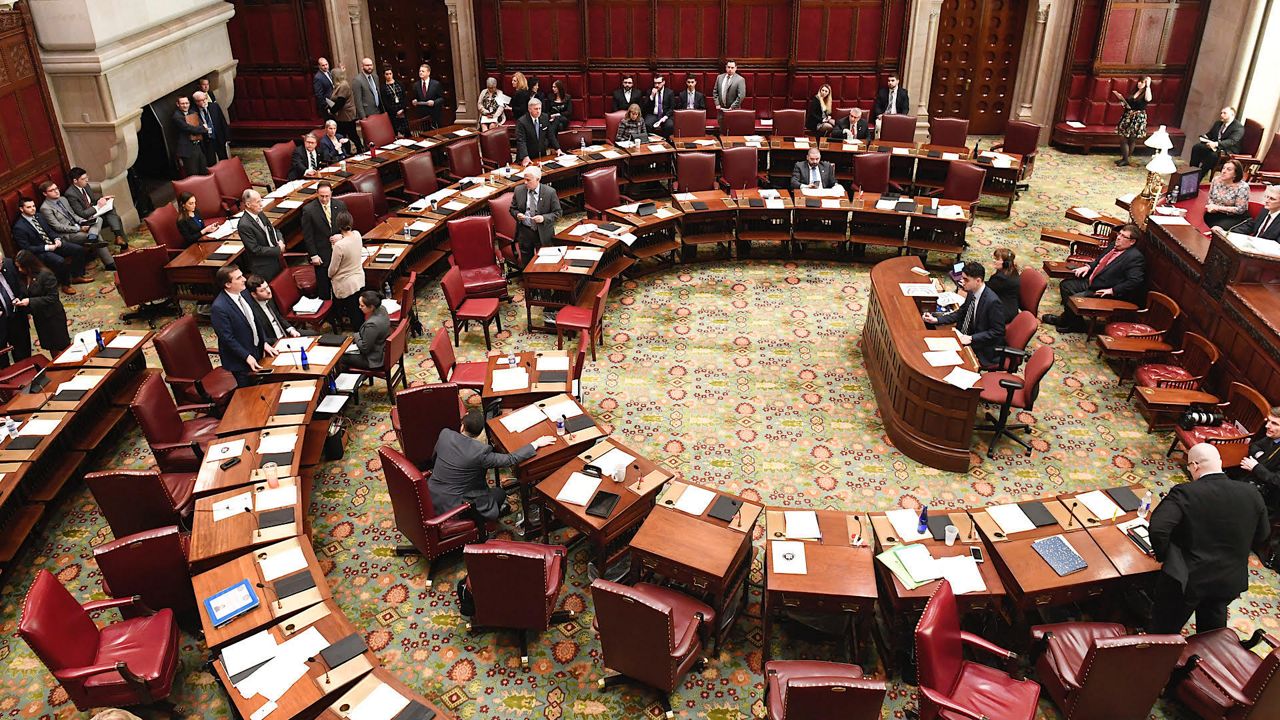It’s been a historic month for Democrats in New York’s State Senate.
After absentee votes were counted in several key races, Democrats emerged with at least 42 seats, with one race still undecided. The magic number of 42 represents exactly two-thirds of the seats within the 63-seat Senate chamber, enough for a supermajority that gives Democrats the votes needed to override any veto from Governor Cuomo.
The Senate will join the State Assembly, which already holds a Democratic supermajority, potentially giving lawmakers the upper hand in future negotiations with the governor.
At a victory lap press conference in Albany on Monday, Senate Majority Leader Andrea Stewart-Cousins tried to downplay talk of any future conflicts with the governor, saying of him: “We generally agree. So I don’t see that this would be an issue. But it is certainly a potential because of our supermajority status.”
But the new supermajority gives the legislature far more leverage in negotiating individual pieces of legislation. Cuomo normally plays a role in helping craft what are known as three-way agreements on legislation between his office and the two houses. But Cuomo has often been accused by critics of watering down progressive legislation. Now, the houses can pass bills as they see fit without the Governor’s input. If he were to veto a bill, Democratic legislators have the votes to overturn him.
But the State Budget will likely remain a separate issue, which is due annually on April 1. When Cuomo took office in 2011, he was working with Republicans who controlled the Senate and Democrats who controlled the Assembly. To get his priorities passed in both houses, Cuomo would often lard up the budget with policy items, that would be less likely to get approved as standalone bills – including a $15 an hour minimum wage that many Republicans opposed.
But although Democrats now control both houses, Cuomo sounds like he still wants to use the same playbook of having the budget advance his priorities. Asked about the new supermajority Monday afternoon, Cuomo said: “The way state government dealt works is through the budget. And the main things are done in the budget, and supermajority or not, it doesn’t make a difference.”
The Governor is correct as long as lawmakers are willing to pass policy through the budget process. If they insist on a more bare-bones budget and tackle policy items separately, their leverage greatly increases.
Even without the supermajority, the legislature already had the power to reject the Governor’s budget and pass its own spending plan.
And can the legislature pass even a budget over veto? “The answer has always been yes,” says Blair Horner of the New York Public Interest Research Group, a longtime watcher of how state government operates.
“But it’s complicated to cobble together your own budget and overcome the Governor’s line-item veto. But theoretically a majority party in both houses has the strength to override.”
And there is precedent, long before Democrats controlled both houses. In 2003, Republican Governor George Pataki vetoed a number of individual appropriations approved by both houses. Instead of accepting the rejections, Republican State Senate Majority Leader Joe Bruno and Democratic Assembly Majority Leader Sheldon Silver teamed up and overrode Pataki. It was a major defeat for the sitting Governor. But nothing like it has been done since, despite wide disagreements between the two houses and Cuomo over spending priorities.
Although no one is talking about in the open, there could be a power struggle next year in the Capitol. And while power struggles are nothing new in Albany, it will be the first time in generations where the legislature could be negotiating from a more powerful position than the governor’s.




